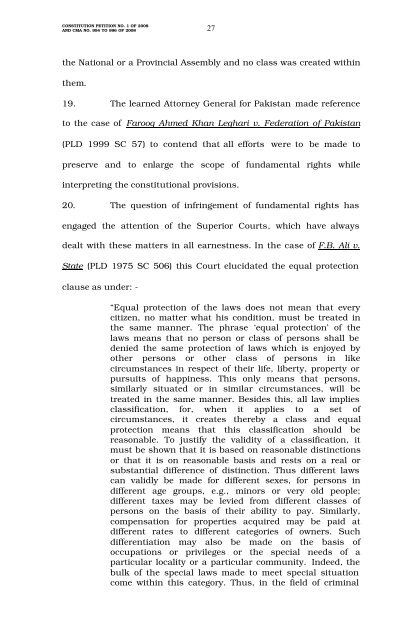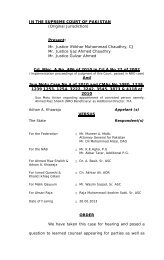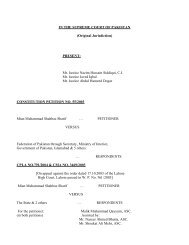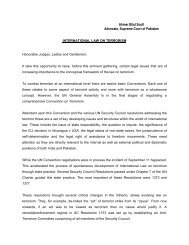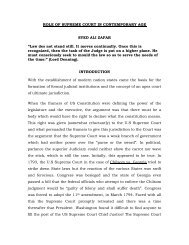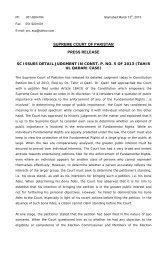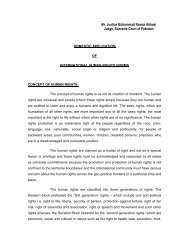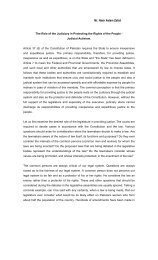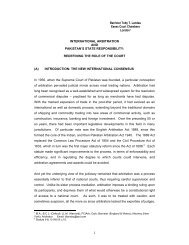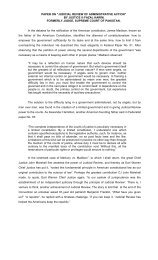MR. JUSTICE ABDUL HAMEED DOGAR, HCJ MR. JUSTICE FAQIR ...
MR. JUSTICE ABDUL HAMEED DOGAR, HCJ MR. JUSTICE FAQIR ...
MR. JUSTICE ABDUL HAMEED DOGAR, HCJ MR. JUSTICE FAQIR ...
You also want an ePaper? Increase the reach of your titles
YUMPU automatically turns print PDFs into web optimized ePapers that Google loves.
CONSTITUTION PETITION NO. 1 OF 2008<br />
AND CMA NO. 994 TO 996 OF 2008 27<br />
the National or a Provincial Assembly and no class was created within<br />
them.<br />
19. The learned Attorney General for Pakistan made reference<br />
to the case of Farooq Ahmed Khan Leghari v. Federation of Pakistan<br />
(PLD 1999 SC 57) to contend that all efforts were to be made to<br />
preserve and to enlarge the scope of fundamental rights while<br />
interpreting the constitutional provisions.<br />
20. The question of infringement of fundamental rights has<br />
engaged the attention of the Superior Courts, which have always<br />
dealt with these matters in all earnestness. In the case of F.B. Ali v.<br />
State (PLD 1975 SC 506) this Court elucidated the equal protection<br />
clause as under: -<br />
“Equal protection of the laws does not mean that every<br />
citizen, no matter what his condition, must be treated in<br />
the same manner. The phrase ‘equal protection’ of the<br />
laws means that no person or class of persons shall be<br />
denied the same protection of laws which is enjoyed by<br />
other persons or other class of persons in like<br />
circumstances in respect of their life, liberty, property or<br />
pursuits of happiness. This only means that persons,<br />
similarly situated or in similar circumstances, will be<br />
treated in the same manner. Besides this, all law implies<br />
classification, for, when it applies to a set of<br />
circumstances, it creates thereby a class and equal<br />
protection means that this classification should be<br />
reasonable. To justify the validity of a classification, it<br />
must be shown that it is based on reasonable distinctions<br />
or that it is on reasonable basis and rests on a real or<br />
substantial difference of distinction. Thus different laws<br />
can validly be made for different sexes, for persons in<br />
different age groups, e.g., minors or very old people;<br />
different taxes may be levied from different classes of<br />
persons on the basis of their ability to pay. Similarly,<br />
compensation for properties acquired may be paid at<br />
different rates to different categories of owners. Such<br />
differentiation may also be made on the basis of<br />
occupations or privileges or the special needs of a<br />
particular locality or a particular community. Indeed, the<br />
bulk of the special laws made to meet special situation<br />
come within this category. Thus, in the field of criminal


